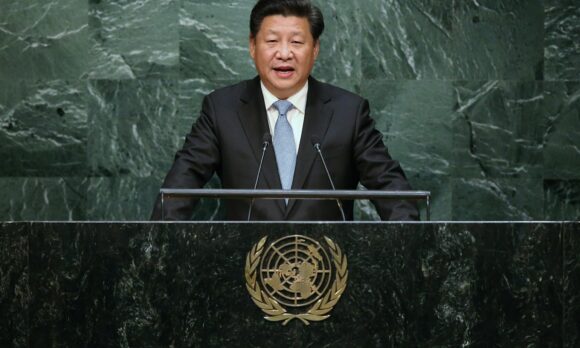
Countering High-Tech Illiberalism
Democracies and open societies are under assault by a new breed of high-tech illiberalism. The same digital technologies that connect people and enable a free exchange of ideas are being used to polarize and pervert the politics of democratic societies. As a result, digital technologies once touted as a democratic panacea are being subverted by authoritarians to deepen their grip internally, undermine basic human rights, spread illiberal practices beyond their borders, and erode public trust in open societies. In some instances, authoritarian regimes may even be able to harness advanced technologies to outperform democracies in certain key areas, weakening the case for political freedom in the emergent ideological competition of the 21st century.
The project, supported by a grant from James and Kathryn Murdoch’s Quadrivium Foundation, will build a broad coalition of stakeholders in the United States and in allied and partner nations—including engineers, academics, technologists, current and former policymakers, and practitioners—to develop the policy and technology innovations necessary to secure a freer and more open future.
This Center-wide initiative is composed of the following major lines of effort. Each line of effort will conclude with recommendations to policymakers to develop new tools, technologies, and policies to maintain the upper hand and push back against surging high-tech illiberalism:
- Digital Freedom Initiative (Paul Scharre): A new initiative dedicated to identifying solutions to protect digital democracy in the United States and abroad by preserving the integrity and value of technologies for free citizens and helping defeat their abuse by malign actors.
- Blunting China’s New Authoritarian Toolkit (Daniel Kliman): A project that focuses on developing a U.S. and allied strategy to curb China’s ability to use digital infrastructure to contravene international standards for freedom and transparency, while educating democratic stakeholders on the risks posed by an unchecked China.
- Impairing Illiberal Populism (Andrea Kendall-Taylor): A project that examines how the media environment and digital space fuel democratic decline. It will offer recommendations for policies and regulations governing the information space and media, as well as strategies for mainstream political actors to deflate illiberal populist movements and stunt their use of technology to undermine democracy.
- Combatting the Use of Financial Technology to Advance Political Illiberalism (Elizabeth Rosenberg): A project to identify how illiberal states are pioneering financial technologies (FinTech) and how the United States and its partners can reduce the deleterious effects of this use, including by updating U.S. and allied FinTech regulations and advancing alternative, global FinTech solutions.
- Assessing the Authoritarian Advantage (Andrea Kendall-Taylor): An initiative aimed at better understanding the precise areas where autocracies can leverage technology to their advantage, in order to help formulate a more successful U.S. strategy in response.
- Projecting Future Digital Threats to Democracy (Loren DeJonge Schulman): A scenario-based effort to better anticipate and deter new emerging threats by mapping the future direction of the information environment. The project will develop a series of possible futures highlighting over-the-horizon trends that demand greater policy attention today.
Learn more about this initiative by subscribing to our newsletter.
Featured Content:
Challenging China’s Bid for App Dominance
Social media platforms are emerging as central to China’s efforts to shape the global information architecture....
Rising to the China Challenge
The United States and China are locked in strategic competition over the future of the Indo-Pacific—the most populous, dynamic, and consequential region in the world....
Why the United States Needs a Digital Development Fund
What the executive branch and Congress can do to counter China’s expanding digital footprint across the developing world....
The Autocrat’s New Tool Kit
Chinese authorities are now using the tools of big data to detect departures from “normal” behavior among Muslims in the country’s Xinjiang region—and then to identify each su...
The Digital Dictators
Rapid technological change will likely produce a cat-and-mouse dynamic as citizens and governments race to gain the upper hand....
Time for Congress to Establish a U.S. Digital Development Fund
As impeachment deliberations roil Washington, Congress will be tempted to look inward and dial back on efforts to address the challenge China poses to American security, prosp...






